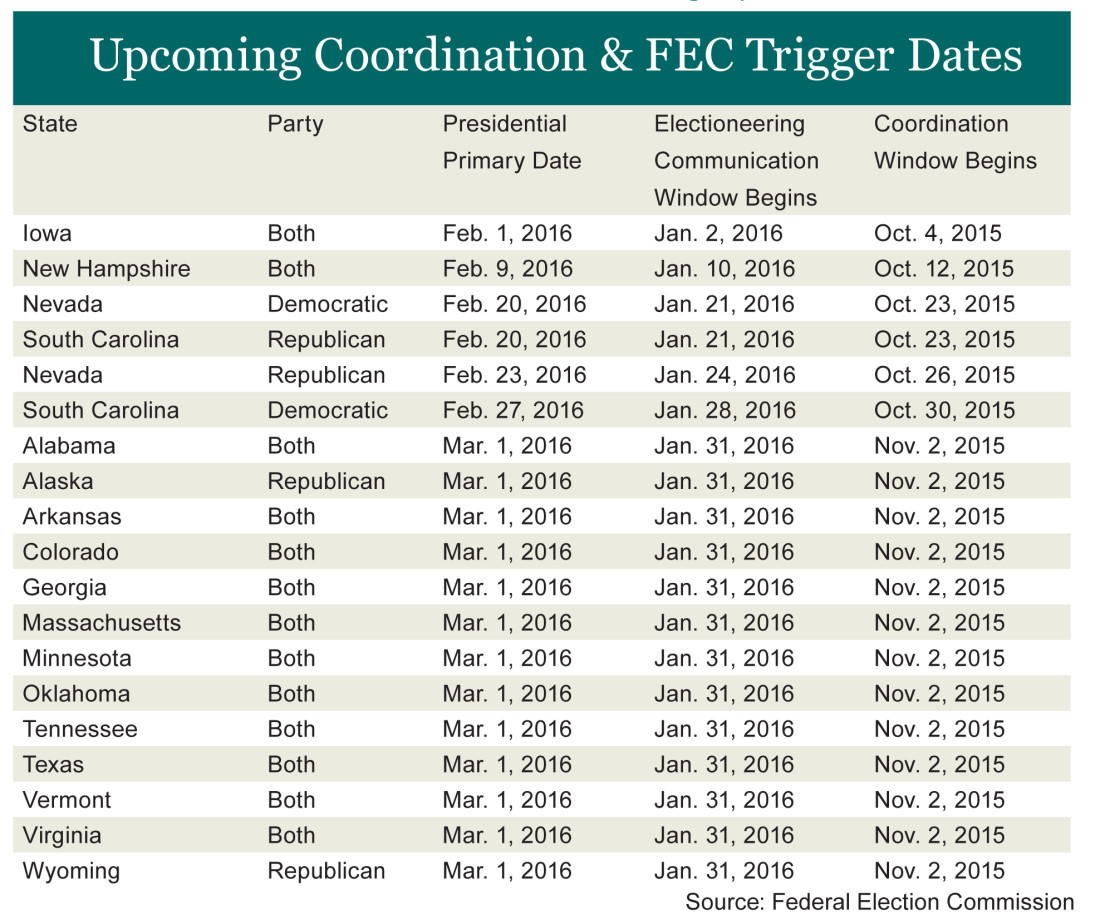2016 Primary Season Is upon Us: Deadline Reminders for Coordinated and Electioneering Communications during Presidential Primaries
By Michael E. Toner and Louisa Brooks
While the 2016 general election is still a year away, the first state presidential primaries are now less than 90 days away. Primary season presents a number of compliance and reporting challenges, and corporations, trade associations, and others should be mindful of the coordination and electioneering periods for these presidential primaries.
Under federal campaign finance law, certain public communications that are coordinated with a federal candidate or political party are considered in-kind contributions to the candidate or party. This means that persons like corporations and labor unions who are prohibited from contributing to candidates are also prohibited from engaging in coordinated communications. It also means that coordinated communications are subject to federal contribution limits, and persons who are permitted to make such contributions—e.g., individuals and political committees—may only spend money on coordinated communications up to those limits.
One important type of coordinated communication for corporations, trade associations, and others to know are public communications that mention or depict a federal candidate and are distributed in a relevant jurisdiction within a number of days of the election. For presidential primary elections, the coordination “black-out” periods begin 120 days before the primary. The chart below provides triggering dates in the early states. Importantly, the coordination blackout, once triggered in a particular state, continues in that state through the 2016 general election with respect to coordinated communications that mention or depict Presidential candidates. (Note that the rules for Senate and House candidates are different.)
The other deadline to keep in mind is for “electioneering communications,” which are broadcast, cable, or satellite communications that mention a candidate and are distributed within 30 days of a presidential primary. Corporations may make electioneering communications, but it is important to remember that certain communications featuring presidential candidates will trigger reporting requirements if made during the 30 days before a primary. Again, the chart below provides the relevant deadlines in the early states.


